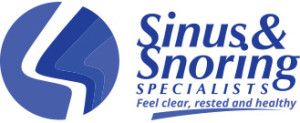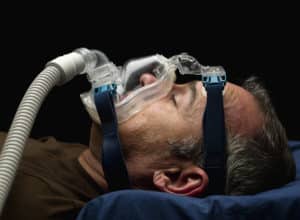Alternatives to CPAP
- Posted on: Dec 20 2017
Do You have sleep apnea but can’t tolerate a CPAP? Learn about the other options available
A CPAP machine pumps pressure through a mask to stent open the back of the throat during sleep. Patients can find the sensation of the pressure to be very bothersome and oftentimes may have claustrophobic feelings when wearing the mask. This is especially true if there is nasal congestion. Fortunately, there are good alternatives in many cases to successfully treat the snoring and sleep apnea.
CPAP Alternative Options
Procedural therapy can be quite effective in the right candidate. Nasal and sinus issues are the primary cause of snoring and sleep apnea. The nasal congestion produces rapid turbulent airflow which creates the vibration and collapse in the throat. It also causes and open mouth posture which allows the tongue to more likely fall back into the airway causing snoring and apnea.
We perform office procedures under IV sedation including balloon sinuplasty, minimally invasive endoscopic septoplasty, submucosal turbinate reduction, nasal polypectomy, nasal fracture repair, and rhinoplasty. These procedures typically take about 20 minutes and most patients can return to work the next day. The patient gets a double benefit as not only does this help improve the snoring and sleep apnea it also allows much improved breathing during the day and reduction in allergy and sinus complaints.
Procedures to help stiffen the soft palate can also significantly improved snoring and apnea. We perform a uvulapalatoplasty (UPPP) which involves a trimming of the uvula and an injection of an alcohol mixture to the soft palate that creates a nice stiffening as the soft palate heals. This is frequently performed under the same IV sedation during the nasal procedure. The patient does have a sore throat for about 2 weeks but it is manageable such that most patients can work the next day.
An oral appliance can be just as effective as CPAP therapy and it is better tolerated. Although there are many varieties, the basic function of the oral appliance is to pull the jaw forward slightly to open the airway. An oral appliance is typically not successful if there is nasal or sinus congestion so these issues should be addressed prior to getting an oral appliance. Oral appliances are also typically not successful unless custom fitted by a specialized sleep dentist.
Weight loss, alteration in sleep position and other aspects of sleep hygiene are also important and need to be addressed with your board-certified sleep medicine physician to get the most successful result.
Schedule a Consultation
If you have been prescribed CPAP therapy and have not been able to use this therapy successfully, you should take advantage of the many other treatments now available. Dr. Daniel Slaughter is board-certified by the American Board of Otolaryngology with a subspecialty in sleep medicine. Call (512) 601-0303 to schedule a consultation to learn more.
Tagged with: CPAP alternatives
Posted in: Sleep Apnea


